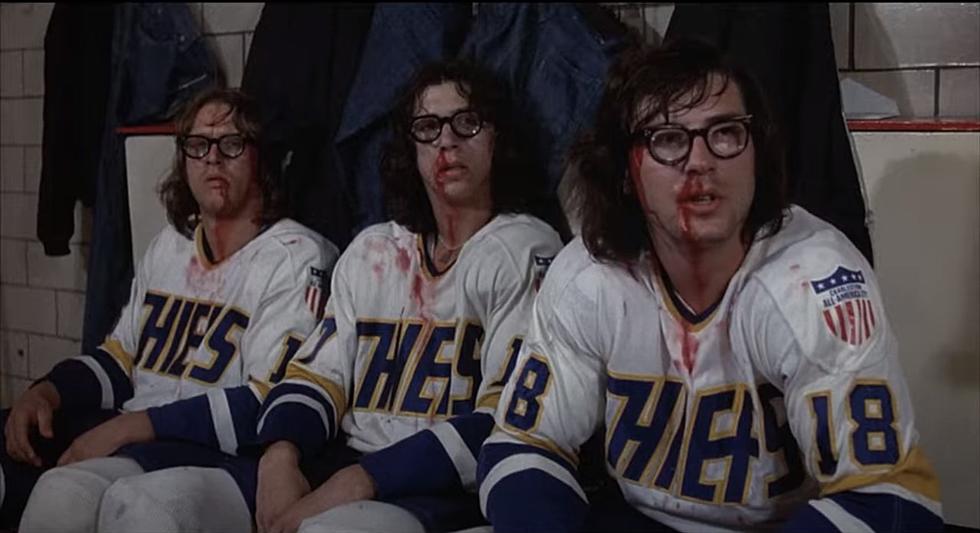
Bettman, Brodeur, O’Ree Top Hockey Hall of Fame Class
Willie O'Ree didn't know he had broken the NHL's color barrier when he made his debut in 1958. Martin Brodeur couldn't see the three Stanley Cup titles and jaw-dropping career ahead when he played his first game in goal for the New Jersey Devils in 1992 and, a year later, Gary Bettman didn't know he would end up growing the league by leaps and bounds over the next 25 years as its commissioner.
All three will go into the Hockey Hall of Fame together as the headliners of a trailblazing class of 2018 that also includes diminutive forward Martin St. Louis, four-time gold-medal-winning Canadian women's national team star Jayna Hefford and Russian Alexander Yakushev.
O'Ree was the first black player in the NHL, Bettman has overseen the league's expansion into a multibillion-dollar industry and Brodeur piled up the most wins and shutouts of any goaltender in NHL history.
"This is an exciting class to be around because everyone has tried to take their game to the next level," Bettman said Tuesday. "I really wasn't focused on whether this was happening now; I was really focused on whether Willie O'Ree was going to be selected because that to me was a very important act for the Hall to take."
Bettman has been commissioner since 1993, during which time the NHL has expanded its footprint across North America and increased from 24 to 31 teams. In that time, the league has gone from a $437 million business to one with almost $5 billion in revenue. It's been an occasionally bruising ride, with three work stoppages, including one that canceled the entire 2004-05 season and led to the salary cap. But Bettman has been nothing if not a strong leader, and all-time great Wayne Gretzky said the efforts to help each club compete have made the game stronger.
"His leadership and love for hockey is very evident," Gretzky said. "Hockey has become more entertaining year after year, thanks in part to his passion for the game."
Brodeur lifted the Stanley Cup three times with the Devils between 1995 and 2003. He leads all goalies with 691 wins and 125 shutouts in 1,266 regular-season games with the Devils and St. Louis Blues, and he won the Vezina Trophy four times. He won 113 playoff games and had a 2.02 postseason goals-against average. Brodeur also scored two regular-season goals and another in the playoffs — more than any other goalie.
The Montreal native was the last real standup goaltender as the position moved almost exclusively to the butterfly technique, and his puck-handling prowess led the NHL to institute the trapezoid behind the net as a way to increase scoring.
"You play your whole career and you don't expect to get this phone call, but when it does, it definitely does feel pretty good," said Brodeur, the Blues assistant GM who was sitting alongside Hall of Fame defenseman Larry Robinson at prospect camp in St. Louis when he got the news. "I want to thank the committee for putting me on so early."
While Brodeur and St. Louis were first-ballot selections, O'Ree had been waiting decades for this honor since making history at the Montreal Forum on Jan. 18, 1958, with the Boston Bruins. He was 32.
A native of Fredericton, New Brunswick, in Eastern Canada, O'Ree finished with four goals and 10 assists in 45 NHL games during the 1957-58 and 1960-61 seasons despite being 95 percent blind in his right eye. O'Ree was the first black player in the NHL but he will be the third inducted into the Hall of Fame, joining Edmonton Oilers goalie Grant Fuhr and Canadian women's national team captain Angela James.
"Willie paved the path for the rest of us," Fuhr said. "In that way he is a true builder of the game. If you look up the word 'builder,' there should be a picture of Willie. He is the Jackie Robinson of hockey."
Bruins owner Jeremy Jacobs said O'Ree receiving this honor was long overdue, adding "Willie has been a tremendous figure in our game both on and off the ice for over 60 years."
Now 82, O'Ree works for the NHL as diversity ambassador, helping with its "Hockey is for Everyone" initiative. There are now about two dozen black players currently on NHL rosters.
"I knew that there were going to be more black players not only playing pro but eventually getting into the National Hockey League," O'Ree said. "Now there's 31 teams in the league and you can see that the black players and the players of color that are playing there, they're there because they have the skills and the ability to be in the league."
St. Louis was a 5-foot-8 winger who put up 1,033 points in 1,134 regular-season games over 17 seasons, winning the Cup with Tampa Bay in 2004 and an Olympic gold medal with Canada in 2014.
"When people tried to discourage me along the way, that's just life," St. Louis said. "I definitely used that as a motivation in trying to prove people wrong."
Hefford won four Olympic gold medals and seven world championships, putting up 30 points in 26 Olympic games. She said the honor was more emotional than some of her medals because she could share it with so many family members, friends and teammates.
Yakushev became known to North American hockey fans during the 1972 Summit Series between Canada and the Soviet Union, with 11 points in eight games. He also won Olympic gold medals in 1972 and 1976.
Hall chairmen Lanny McDonald and John Davidson reached Yakushev in Russia, right after he had come off the ice after playing a game at the age of 71.
"He was not only thrilled (but) when I asked him if he won the game he said, 'Yes we won, I'm still playing, this is the best day ever,'" McDonald said.
More From 1460 ESPN









